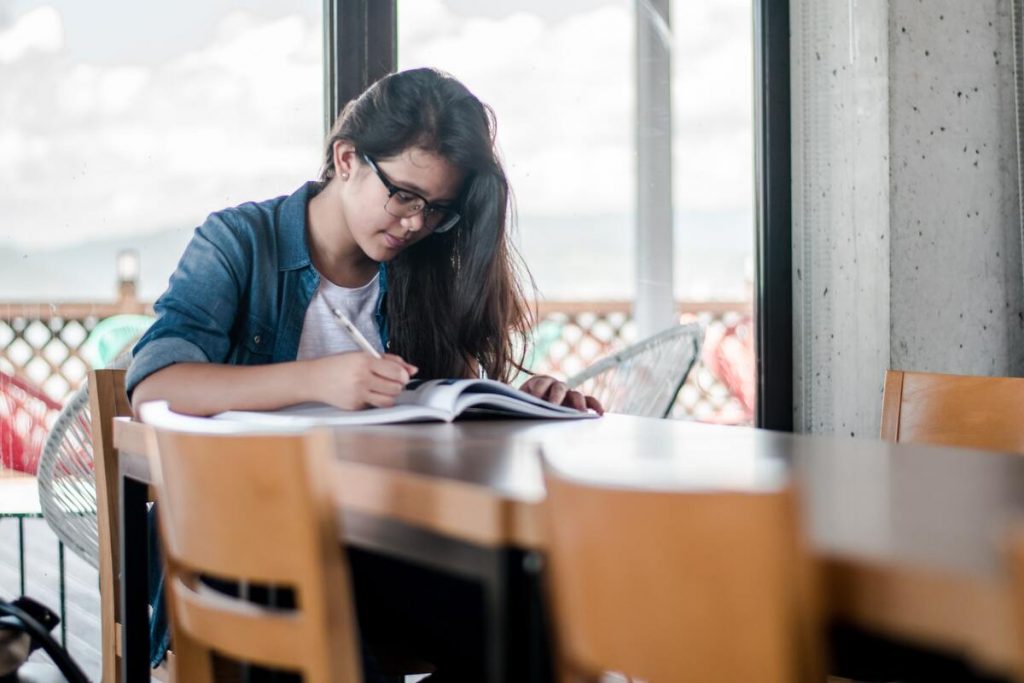Have you ever felt like studying all night to get better results in your test the next day didn’t help you much, that it only deprived you of sleep? Well, maybe there’s something you do more, or even less.
Studying longer and not getting better results doesn’t mean there is something wrong with your approach. It just means that it’s not your learning style, and if you experiment with other routines, you might find one that suits your needs as a learner.
Studying Better And Smarter
Most students’ style in studying is reading their notes and books, which may work for some. But for other students, it may not. Research has shown that different styles and ways of learning could help students study better and smarter. Here are some of them:
-
Choose and create a proper space for learning
It would help if you studied in a place without any distractions. Your bedroom could be a perfect example because it is your personal space which you could alter as you see fit to put you in a better mood when studying. To focus better, you can close your windows, play a YouTube instrumental playlist, and light incense, or use a personalized aroma you can get from reed diffuser suppliers. The only distraction is your bed which could be inviting when you start to get sleepy and tired.
Other places suitable for studying would be your living room, a library, a park, and a coffee shop. You can even go to several places during your study time if you feel like you’re dozing off or spacing out. Traveling from one place to the next should help you reset your brain and help you stay alert and focused.
-
Schedule your studying
While cramming is a quintessential part of students’ busy lives, it’s not a trend that will help you. Of course, studying before the day of your examinations is good for you to store all the information you need, but it is not practical to put all your studying on that day.
Research shows that it’s better to study everything you need to learn in several days to give your brain a chance to store all the information in your long-term memory. If you do it all in one day, it would be an information overload for your brain that it could mix up all the information you learned about, which doesn’t help at all. So, it would help if you allowed time for your brain to process the information. Give yourself a break so that you can learn better.

-
Do a practice test
Of course, you’ve heard that practice makes perfect. Yes, that is also applicable to learning, but it doesn’t mean you’ll get perfect scores for your tests; it just means you’ll have a better chance at getting a good score, or maybe even a perfect one. Some studies have shown that this could be an excellent way to boost your brain’s retention of the information you learned.
If you’re wondering how to do a practice test, you can download a sample test from the internet based on the topics you are reviewing. Another way is to pair up with your friends in class create a test for each other. Just make sure you don’t just hang out with each other while learning.
-
Chew gum while learning
Now, this might sound like an absurd tip, but according to several studies, chewing gum while studying could help your cognitive functions, alertness, memories, concentration, attention, and overall learning. It could also reduce your stress.
Some studies also even show that if you chew the same flavor of the gum you were chewing on while studying while taking your exams, it could help you remember some information from your review time. It sorts of acts like a switch for you to access that information.
Although some studies have shown different results, that chewing gum doesn’t really help learn and remember information; there’s no harm in trying it. If it does help, then that’s good for you; if it doesn’t, then at least you’ve got fresh breath.
You Do You
This list has only covered a few unique techniques and practices that you could give a try. You should remember that you should study better and not longer, so give time for yourself to get some sleep.
Lastly, there are seven types of learners: auditory, visual, verbal, logical, social, solitary, and physical. Once you have tried some of these practices and identified what kind of learner you are, then you’d have a better sense of which learning techniques suit you best.


